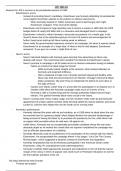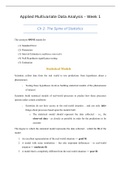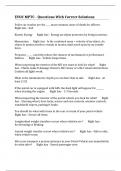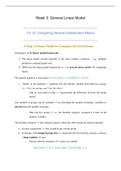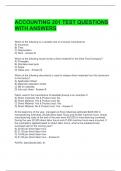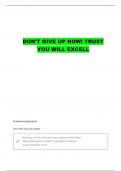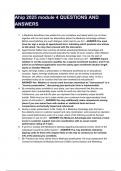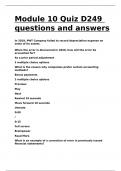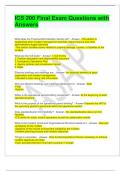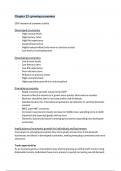Reasons for JFK’s success in the presidential election of 1960
- Eisenhower’s errors
- Instead of promoting Nixon’s candidacy, Eisenhower was furiously defending his presidential
record against Kennedy’s attacks on his policies on defence and poverty.
- When Kennedy claimed 17 million Americans went to bed hungry each night,
Eisenhower snapped, ‘They must all be dieting.’
- Eisenhower and Congress’s huge spending cuts to ensure a surplus in 1960 after the 1959
budget deficit of nearly $13 billion led to a recession and damaged Nixon’s campaign.
- Eisenhower’s refusal to refute Kennedy’s inaccurate accusations of a ‘missile gap’ in the
Soviet’s favour due to the potential exposure of covert US actions and encouragement of
further Soviet arms build-up left Nixon looking weak on defence.
- Nixon made his governmental experience central to his campaign, but when a reporter asked
Eisenhower for an example of a ‘major idea’ of Nixon’s that he had adopted, Eisenhower
answered, ‘If you give me a week, I might think of one.’
- Nixon’s errors
- Nixon’s televised debates with Kennedy gave Kennedy free advertising as Nixon was
already well known. This could have been avoided if he listened to Eisenhower’s advice.
- Nixon’s promise to campaign in all 50 states led to his obvious exhaustion during his debate.
- Failure to construct an ideal image for himself
- While Kennedy looked straight at the cameras, Nixon looked sideways at
Kennedy and projected shiftiness.
- After a weekend at Cape Cod, Kennedy seemed relaxed and healthy while
Nixon was tired and recovering from an infection. Chicago’s Democrat Mayor
Daley exclaimed, ‘My God! They’ve embalmed him before he even died’ at
the sight of Nixon.
- Inaction over Martin Luther King Jr’s arrest after his participation in an Atlanta sit-in in
October 1960 which the Kennedy campaign made much of in terms of how
Kennedy’s calls to Coretta King and the Georgia authorities helped secure King’s
release. This gained Kennedy black votes crucial to his victory.
- Nixon’s running mate, Henry Cabot Lodge, lost him Southern white votes by promising the
appointment of a black cabinet member while Kennedy defied his closest advisers and chose
Lyndon B. Johnson who helped him win the South as his running mate.
- Kennedy’s performance
- Kennedy charmed the press with wit and modesty, as in 1958 when he joked about the wire
he received from his ‘generous daddy’ which helped diminish his electoral disadvantage of
being accused of having his father try to purchase the presidency for him, while Nixon had
no rapport with journalists whom he said were ‘all against me’.
- Unlike Nixon, Kennedy was an exceptionally personable candidate whose film-star looks
attracted people as he worked the crowds that one reporter complained the campaign was
‘just an effective presentation of a celebrity’.
- Kennedy effectively used his youthfulness in his exploitation of the contrast with the elderly
Eisenhower. He encapsulated this campaign theme in his slogan, “Let’s Get The Country
Moving Again’, which suggested a dynamic contrast to Eisenhower and stagnation.
- Kennedy emphasised that not all Americans participated in the American Dream under
Eisenhower, citing 7% unemployment and underemployment.
- Kennedy’s Catholic belief opposed the prevalent anti-Catholicism in the US that the narrow
margin of his victory in terms of popular vote owed much to Protestant reluctance to vote for
the first Catholic president of the US.
The ideas behind the New Frontier
- ‘Poverty and surplus’
, - JFK promised that if elected he would not be indifferent to poverty after campaigning in
impoverished West Virginia in 1960. However, this could have been targeted at
impoverished West Virginia and fellow Democrats who doubted his liberal credentials to win
votes.
- ‘Peace and war’
- Kennedy conducted Cold Warrior election campaigns that promised to wage the Cold War
with more vigour and emphasised how Democrats were better than Republicans at
defending that nation against Communism.
- ‘A new generation of leadership’
- In keeping with his theme of change and dynamism, Kennedy’s New Frontier helped him
differentiate himself from the New Deal and the Fair Deal by tarnishing the Eisenhower era
as one of selfish complacency and burnishing the Kennedy charisma with an idealism and
dynamism that captured popular imagination.
In 1972, the journalist David Halberstam referred to the JFK’s administration as ‘the best and the brightest’
- Kennedy’s administration had overall little experience in governing except for Johnson who was a
legislative expert and who Kennedy did not want to be seen as reliant upon.
- Lyndon B. Johnson - Vice President
- Choosing Johnson as his Vice President helped win Kennedy the 1960 election and
helped get bills through Congress. As a southern politician he could relate to the
Dixiecrats and as a seasoned politician knew how to get legislation moving.
- Bobby Kennedy - Attorney General (legal advisor)
- Under Bobby Kennedy convictions for organised crime increased 800% and he
repeatedly intervened on the side of the civil rights movement in the Freedom Rides,
over James Meredith’s admittance to the University of Mississippi.
- Dean Rusk - Secretary of State (foreign policy advisor)
- Robert McNamara - Secretary of Defence of the United States
- Kennedy’s appointment of Robert McNamara was an error, heavily driven by
statistical analysis rather than experience – he advocated for increased involvement
in Vietnam and for building up deterrence in armaments, exacerbating the Cold War.
Domestic / economic policies
- JFK spoke of ‘unanswered questions’ of poverty in a land of ‘surplus’ in his New Frontier speech.
- JFK used his executive powers to focus federal purchasing power and construction projects on
areas of high unemployment and direct the Department of Agriculture to double food distribution to
the poor and unemployed.
- In 1963, The US remained by far the world’s most prosperous nation.
- Personal income rose by 15%.
- However, inflation and unemployment was on Americans’ list of major concerns in a 1963
poll with unemployment averaging 5-7% in 1961-63.
Employment
- The 1961 Omnibus Housing Act granted $5 billion for the extension of existing programmes, such
as urban renewal and public housing, which provided more job opportunities, and authorised low-
interest loans for struggling middle-income families to boost their financial capacity. However,
Congress aimed to get America out of recession rather than alleviate poverty, so the Act helped
developers, construction unions and Democrats running for office more than it did the poor.
- The 1962 Manpower Development and Training Act boasted 351 approved programmes for 12,600
trainees in 40 states to train and retrain those unemployed because of increased automation and
technological change. However, these programmes mainly subsidised officials and private interests
who provided the training instead of greatly reducing the number of the employed.
Financial benefits

